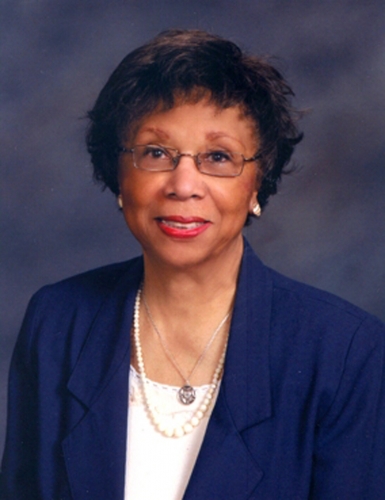
Shirley Martin
An Interview with Shirley Martin, Medical School Administrator for Student Affairs, 1967-1992.
"At the time I was hired, the medical school was very intent on enrolling more African American students. I feel that I greatly contributed to their efforts to make the medical school more diverse because I took my role seriously as a student advocate. The African American population at the medical school grew quite a bit during my years and certainly at the end of my career I felt we were well represented.
The school had to open up and recognize that there were many qualified and more than qualified African American students out there that they had not reached out to; this became not only a mandate but also a large part of my life since I approached my job with the understanding that a variety of kids were qualified for the school.
I remember being so proud at graduation when I would see students I had counseled garbed in their doctorial robes before I led them out on the stage, I felt a lot of pride for each one of them realizing how tough it was academically and socially at the medical school. It should not have been part of what they had to deal with but they continually had to convince other students that they were not there just because of affirmative action and that they were capable because they were intelligent and had been admitted because of their credentials just as the rest of the students had. However they ran into that often and that was demeaning to them continually having to convince others they were where they were supposed to be based on their qualifications.
I remember a student coming into my office one day, and looking at the student I could tell right away there was a problem. This student had decided that he was going to drop out of medical school. He told me some things that were occurring, such as proving his worth to doubting students and professors. With all that and the academics, classes, and expectations he was just overwhelmed and had decided he was leaving. I remember telling him 'No, you will not leave this medical school. You are here because you deserve to be here and even more so than some others. You will be successful at this medical school just as the expectations were when you were offered the admission and you won't let negative comments influence how you feel about yourself because you are capable and I expect to put your gown on you the night you graduate from here.' I let him know that my door was always open to him, and that if there was an issue that was interfering with his progress academically he could always talk to me. He ended up graduating and that is one instance where I felt my role made a difference.
(I remember that) Ben Carson stood out even as a student, as having a firm direction of what he wanted to be and to do. He never departed from that. He was a student who eased through the school very well and it is those examples of students I can point to who stood tall and proud. It was not surprising to me that he was able to go on and be so successful even coming from the background that he came from and today he is the Director of Pediatric Neurosurgery at Johns Hopkins Hospital.
For the future of the staff, I think it is important for the university to understand that diversity is helpful for the institution and the student body and to stay committed to that. The university should continue to reach out to qualified students but they have to know that they are wanted and that they have a place."